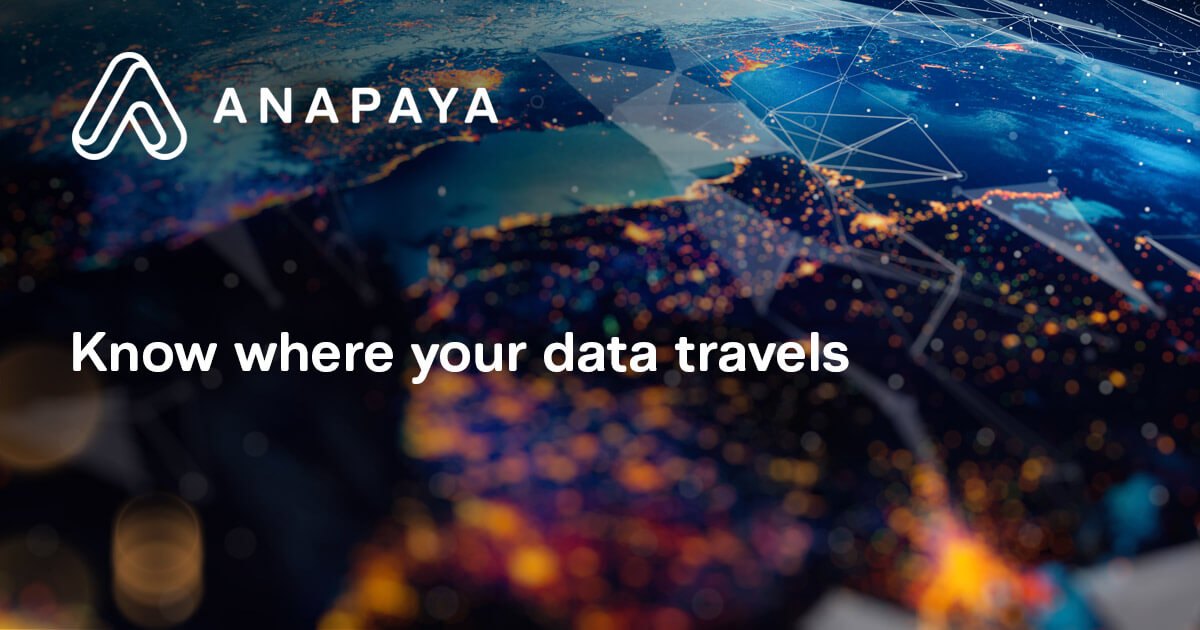Why it's important for businesses working within the financial sector to know where their business data travels on the internet.
It’s 2020 and hardly a week goes by without hearing about another major cyberattack, a data leak or a company’s information being held ransom by a cyber-criminal. Today, data is money, and we as businesses, professionals and private individuals simply don’t have the control we need to protect and secure it.
For example, the majority of internet users have no idea how their data travels, where it goes to and, more importantly, who can access it. The amount of control that we have over our private communications and data streams is minuscule over the internet, and protection from cyber-attacks from the internet is almost non-existent.
That’s why this blog post and its accompanying report are important for financial services organisations as well as individuals. You deserve to know where your data travels, and you have the right to control it.
How your financial data travels on the internet
When you click ‘send’, ‘post’, ‘upload’ or otherwise send your personal or financial data over the internet, quite a few things happen without us even realising it.
The internet itself is made up of multiple different networks, controlled by many different kinds of companies around the world. Your data, whether it be a post on Facebook or highly sensitive financial business information, travels through these networks, each making their own decisions about where your data goes independently of the rest.
These networks are all connected, loosely, by a system called the Border Gateway Protocol, that works like a telephone directory helping the networks to locate one another. Through the Border Gateway Protocol, the networks automatically attempt to identify the shortest and most optimal route to your data’s final destination.
The problem with sending financial data through the internet
While the automatic selection of networks that your data travels through is efficient, it is by no means secure or controlled. Let’s take a look at why sending data through the internet can be dangerous for users and companies.
Lack of control
Owners of the data being sent through the internet have no control over which particular networks handle their data, where those networks are physically located or who owns that specific network. It can be quite surprising to discover that your data sometimes travels through places that include countries with dubious privacy laws, areas with a history of cybercrime or locations that don’t have any regulatory checks at all.
Businesses who use the internet to send sensitive, highly valuable data simply don’t have sufficient control over where their data travels - from source to destination. While private wide-area networks are isolated from other private networks, public networks such as the internet must be reachable by anyone with a connection. This leaves companies who use public networks at risk.
Internet routing fraud
The networks of the internet described above make automatic choices for the data that travels through them based on speed and optimisation. Cybercriminals have been known to publish fake routes and networks on the Border Gateway Protocol to fool legitimate networks into sending data through them. On these fake routes and networks, cybercriminals can hijack and harvest the data, and send it on its way with no-one the wiser.
These attacks can have disastrous results for businesses that deal with highly sensitive information, such as financial services or banks. One such example of these attacks occurred in 2017, where large chunks of network traffic belonging to MasterCard, Visa, and more than two dozen other financial services companies were briefly routed through a Russian government-controlled telecom under unexplained circumstances. Details such as PIN codes, banking information and others were left vulnerable to unknown individuals who could easily use that information against those companies and individuals.
The point is, since inception, the internet has never included built-in protection methods from these kinds of routing attacks, and companies today are vulnerable every time they connect to the internet and send data.
A better way to connect
Of course, the solution to this is not to simply forego the use of the internet. The internet has become a critical component of our business and our private lives. Companies with sensitive data need more control and security - a better way to connect.
Solutions such as SCION networking through the SCION-Internet offer companies the ability to select which networks their data passes through. For example, if they wish to avoid certain geographical locations, they may choose which to avoid before sending or choose to avoid poorly regulated locations or networks entirely.
The SCION network is also completely immune to routing attacks, with information only being sent through legitimate networks registered through the SCION-Internet. This allows businesses with sensitive data, such as banks, peace of mind whenever they connect.
Financial organisations as well as other businesses who participate in the SCION-Internet automatically benefit from unprecedented security, reliability, compliance and control. Businesses today have a better way to connect.
If you would like to find out more about the SCION-Internet, how to participate in it or even just general information on security solutions for networking, consider Anapaya Systems.
Anapaya Systems represents a more reliable, secure and transparent way to share, communicate and work online where cybersecurity concerns are a thing of the past, and participants will be able to control where and how their data is used through location-based parameters.
If you're interested in learning more about how your financial data and other information traverses the internet, read our detailed report.
For more information, visit Anapaya’s website, or contact Anapaya to start protecting your data, today.

Olivier Moll
French in his core, Olivier loves cooking and traveling with his family.





.png?width=380&name=Image%20(11).png)




